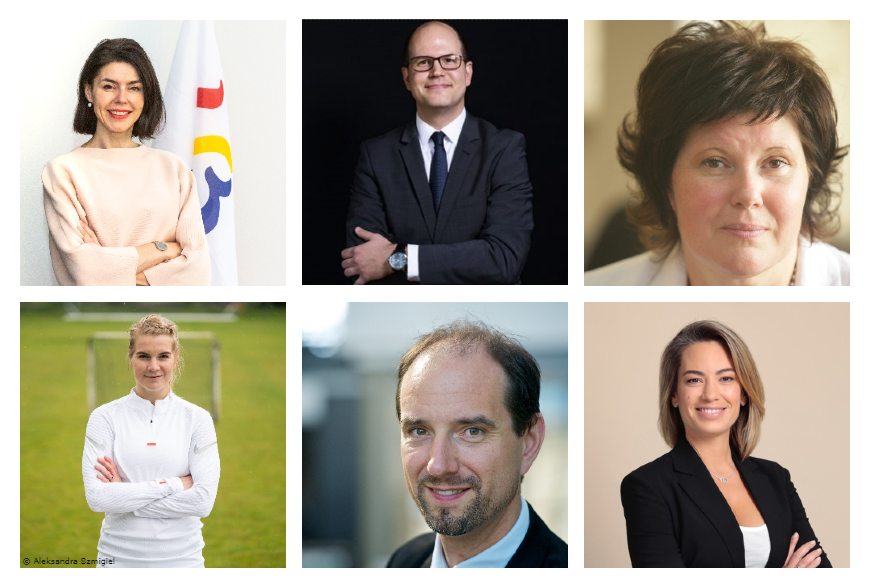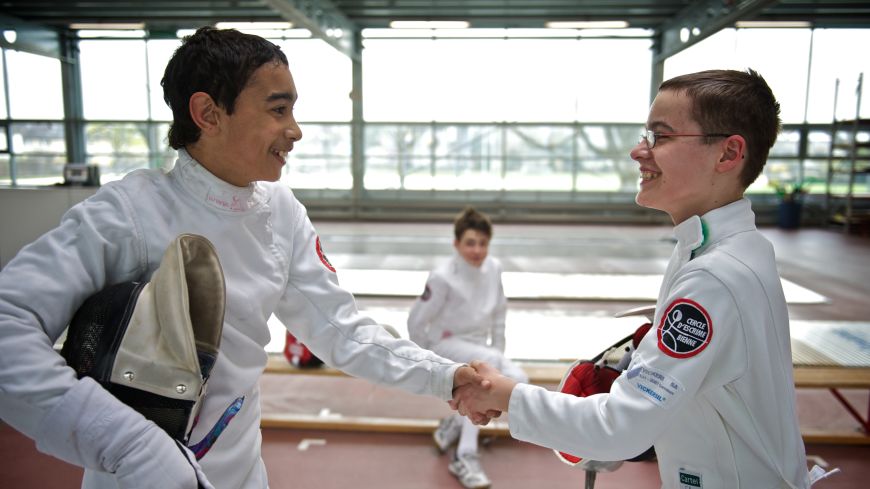Gender equality in all aspects of life has been an important policy goal of the Council of Europe for many years, and its Enlarged Partial Agreement on Sport (EPAS) has carried out activities and produced useful tools to help member states and sports organisations understand and take action in the fight against gender inequality in sport.
As a side event to the UN’s 65th session of its Committee on the Status of Women (CSW65), EPAS hosted an online round table discussion on 16 March 2021 to highlight the current situation in sport and what steps are being taken to challenge stakeholders to continue the fight.
The round table was moderated by journalist and TV presenter, Anne-Laure Bonnet, who asked the panellists questions on why it is so fundamental to achieve gender balance in sport and what has been done so far to improve it.
Valérie Glatigny (Minister in charge of Sport, Federation Wallonia-Brussels, Belgium) and Andreas Zagklis (Secretary General of FIBA) gave updates from the perspective of a public authority and an international sports federation respectively, and spoke of policies and initiatives put in place to attract women and girls to sport, and in particular in leadership roles. They underlined that in order for sport to develop, gender equality must be developed first.
Ada Hegerberg, international footballer (Norway and Olympique Lyonnais) spoke from experience about issues encountered on and off the field, the importance of female role models for both girls and boys, access to academies right from the beginning, and about the role of the media when portraying women in sport.
Kateryna Levchenko (Vice-Chair of the Gender Equality Commission of the Council of Europe, and Government Commissioner for Gender Equality Policy, Ukraine) highlighted the popularity of sport in different age and social groups and its capacity therefore to be a driving force to change mentality when it comes to stereotyping.
Stanislas Frossard (Executive Secretary of EPAS) spoke of the main findings following a vast data collection campaign run by a 2019 European-focused joint project (Council of Europe and the EU) called “ALL IN”, and of the Council’s intention to launch a more wide-spread, global, data collection campaign every four years – next one in 2023 - in order to really challenge states and sports organisations to forge ahead on gender equality in sport. gender equality policies. He reiterated the readiness by EPAS to share its tools and its experience with states and sports organisations beyond the European continent.








